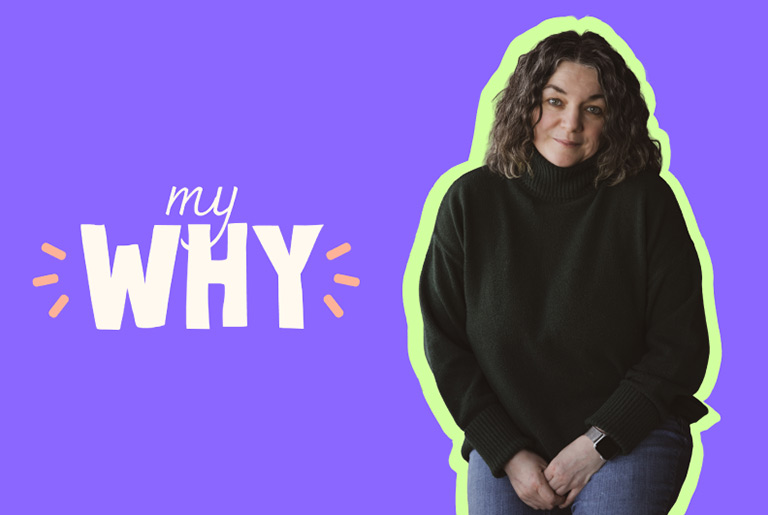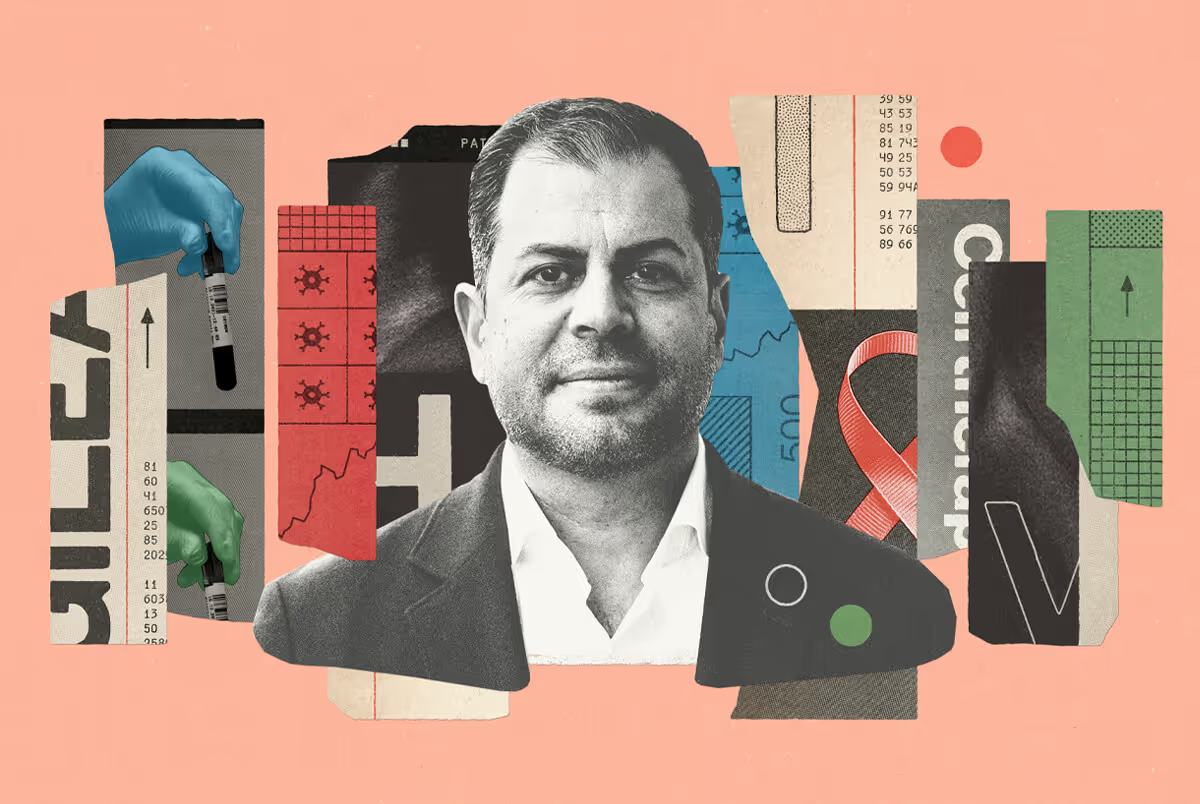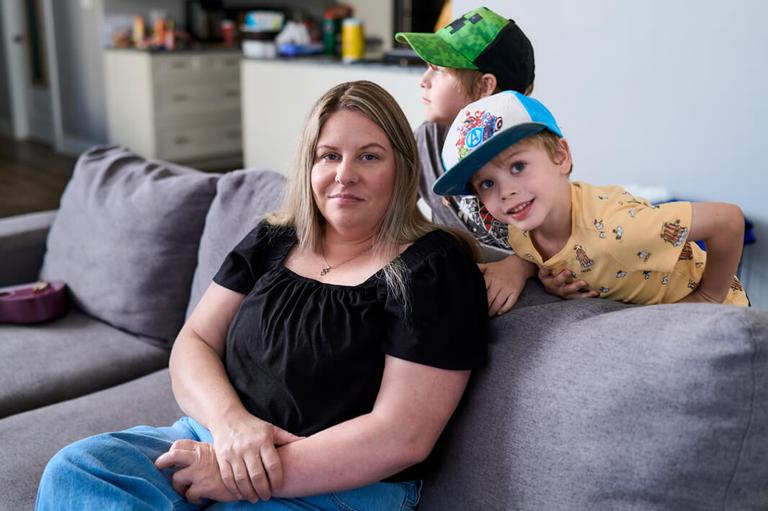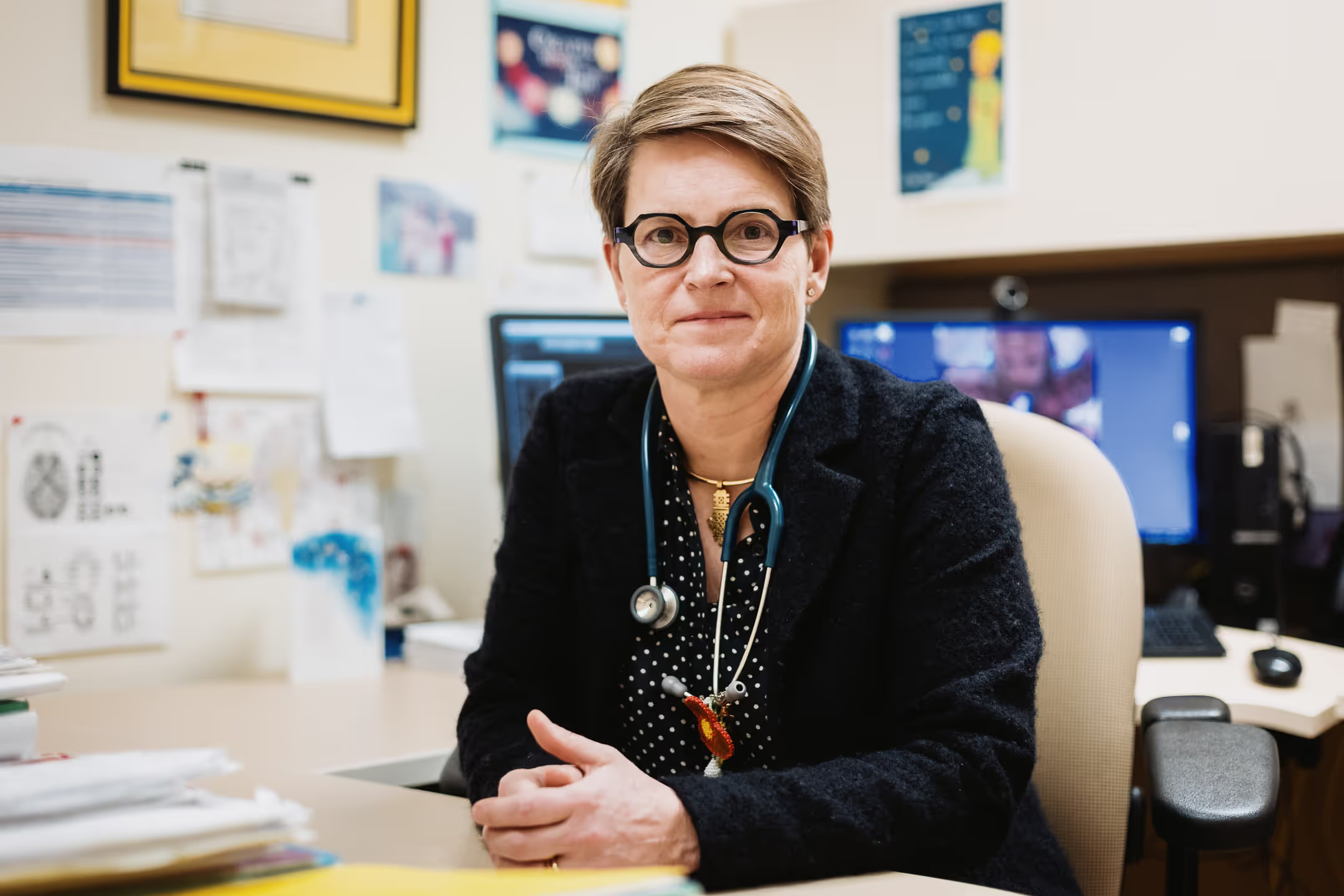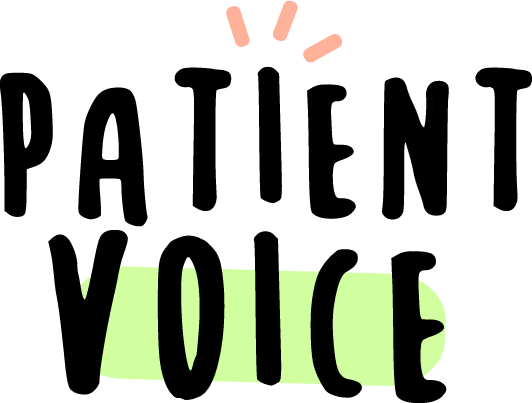“Luke was such a happy and easygoing baby. Today, he’s a happy and easygoing 28-year-old. But the journey there was nothing we could have expected.
When Luke was six months old, we were all excited—including his sister Clarissa, who was a toddler—to put him in the Jolly Jumper for the first time. But instead of bouncing, he just slumped over and started seizing. I’m a nurse, so even though I had no idea what was happening or why, I knew what I was seeing. We called 911 immediately.
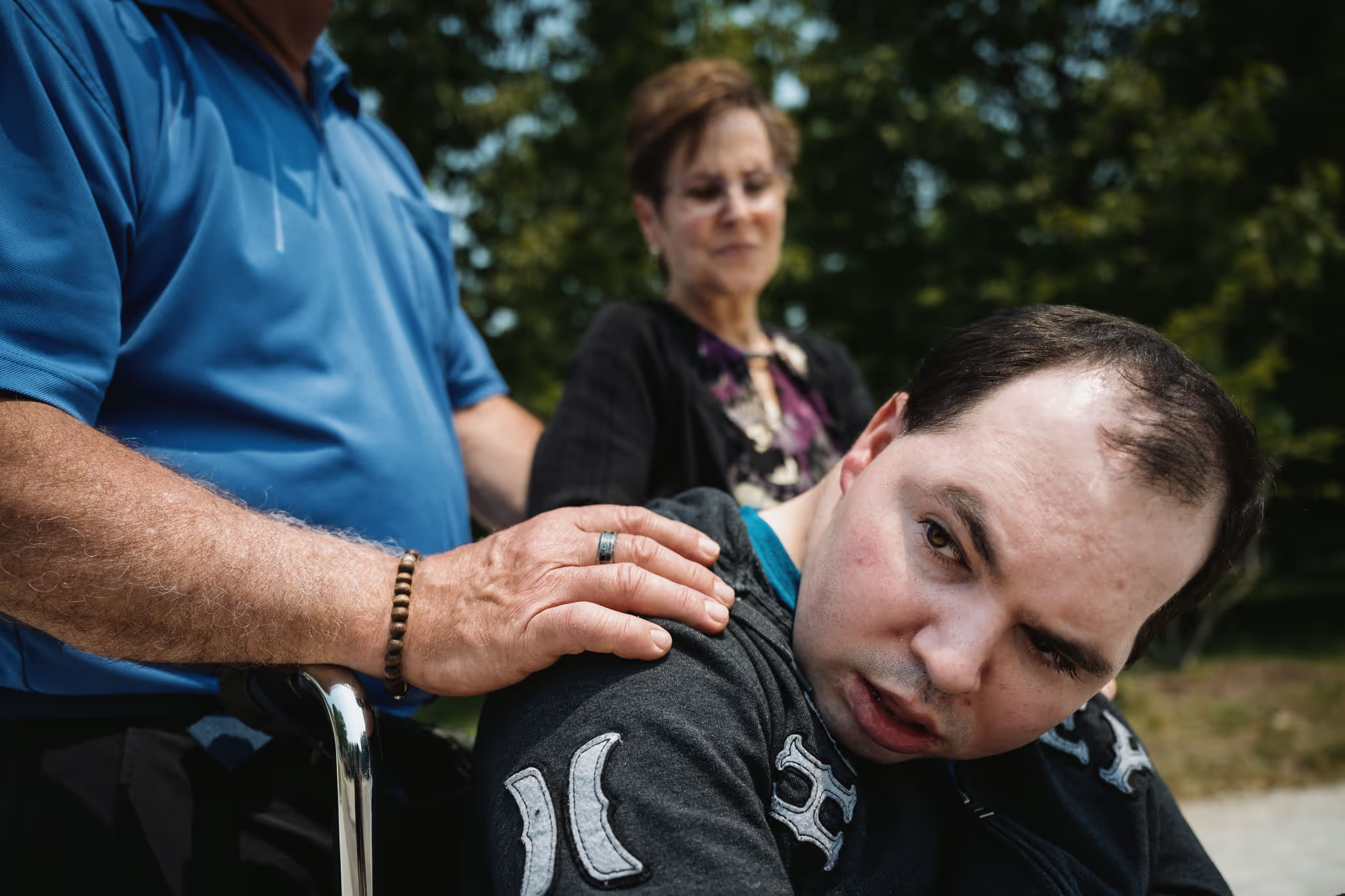
They said it was epilepsy, but over the years the medication kept changing. We were always hoping that maybe the next medication would be the one that made everything better. We were circling the wagons as a family, leaning on our faith, and trying to build a sense of normalcy for both Luke and Clarissa. We had this sense that despite Luke’s seizures, despite his slowed development, despite the brain surgeries, we were still just a family. We would go ice skating together, camping, or bicycling, with Luke on a trailer bike. We were reminding ourselves that these moments were both important and impossible, even as we mourned our old expectations. It gave Luke such a strong sense of family that, to this day, he thinks his sister can walk on water.
“It was a relief to have a name for it, but it also meant accepting that it wasn’t going to get better.”
It wasn’t until Luke was 19, still with the function of a toddler, that we finally got a clear diagnosis of Dravet syndrome. It was a relief to have a name for it, but it also meant accepting that it wasn’t going to get better. So when the opportunity came for Luke to move into a group home for medically fragile adults, we knew it was best for him. But it also started a whole new process of grief, one that will never leave me until I’m gone.
And someday, Luke’s father and I will be gone. I’ve had rare aggressive breast cancer twice. My husband, Brian, has had bladder cancer five times. We would always worry, if something happened to us, would Luke be okay? Now we know he will be. He’s so resilient and empathetic and so great with the other residents. He finds so much joy in his life through simple things—like collecting leaves in the park, or eating a whole bowl of popcorn, one kernel at a time.”



